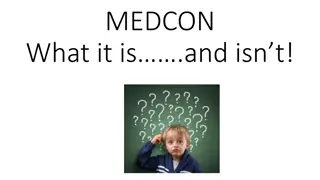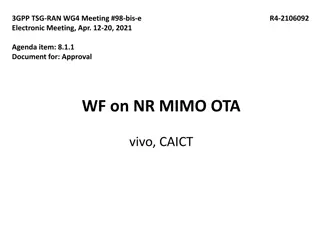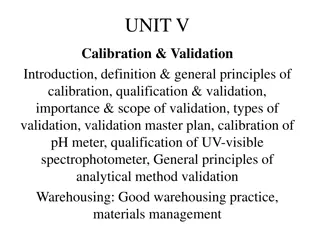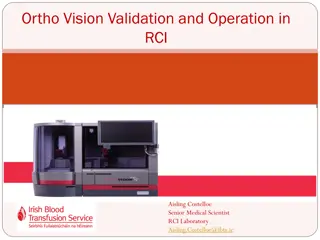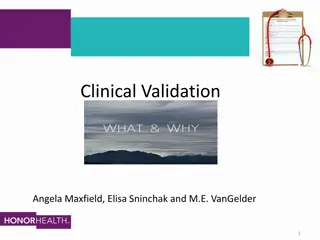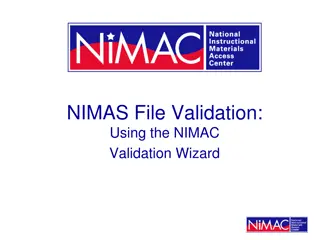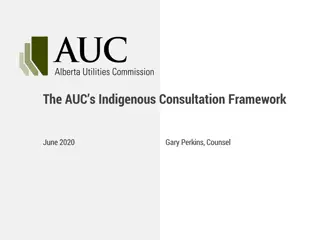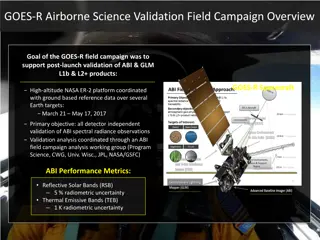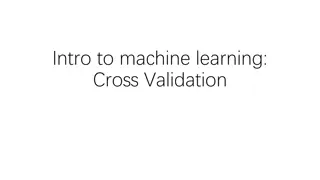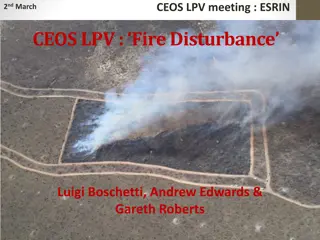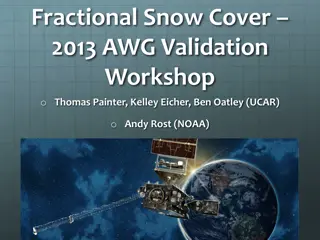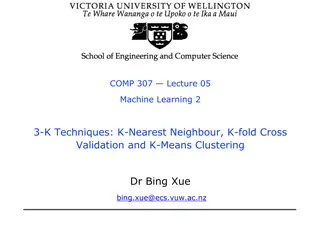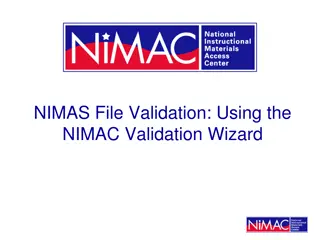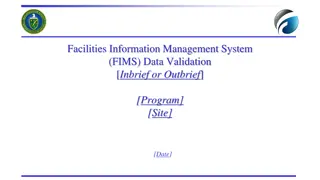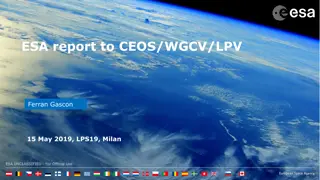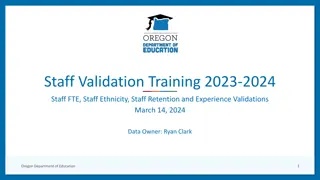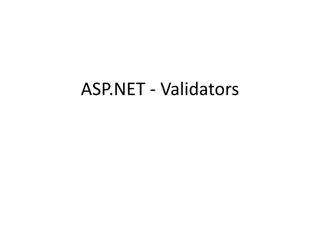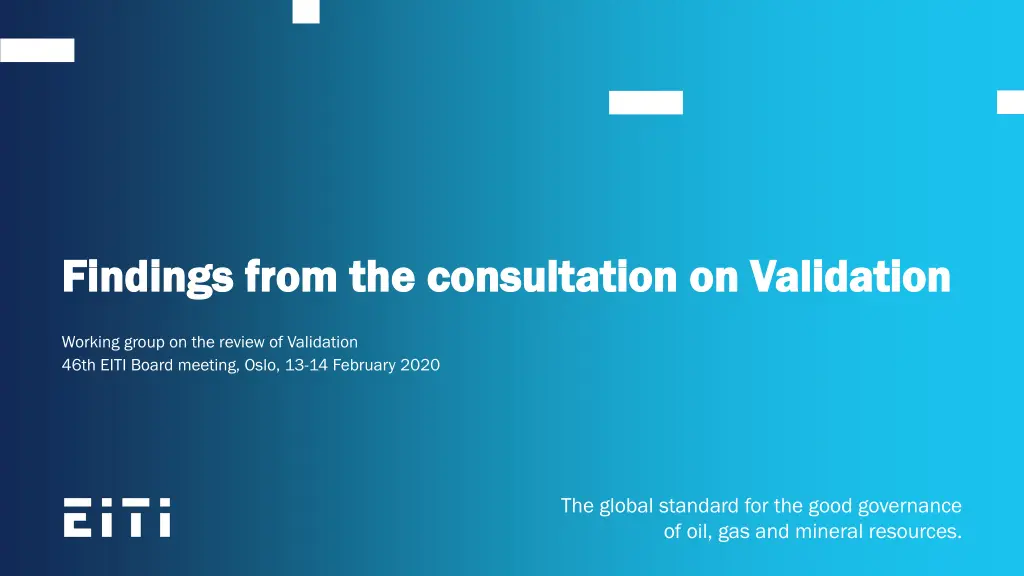
Insights from 46th EITI Board Meeting Consultation
Gain valuable insights from the findings of the consultation on the Validation Working Group's review discussed at the 46th EITI Board meeting in Oslo. Key areas of focus include measuring compliance, resourcing, stakeholder engagement, and balancing common standards with local priorities.
Download Presentation

Please find below an Image/Link to download the presentation.
The content on the website is provided AS IS for your information and personal use only. It may not be sold, licensed, or shared on other websites without obtaining consent from the author. If you encounter any issues during the download, it is possible that the publisher has removed the file from their server.
You are allowed to download the files provided on this website for personal or commercial use, subject to the condition that they are used lawfully. All files are the property of their respective owners.
The content on the website is provided AS IS for your information and personal use only. It may not be sold, licensed, or shared on other websites without obtaining consent from the author.
E N D
Presentation Transcript
Findings Findings from from the the consultation consultation on on Validation Validation Working group on the review of Validation 46th EITI Board meeting, Oslo, 13-14 February 2020 The global standard for the good governance of oil, gas and mineral resources.
Key Key facts facts on on the the consultation consultation Consultation period from 9 December 2019 to 31 January 2020. Open to all stakeholders. The invitation to contribute was shared with national secretariats and through the EITI s communication channels. Focus on four areas in line with the scope of the Validation review: (1) Measuring compliance and impact; (2) Resourcing and roles; (3) Structure, timing and consequences of Validation; (4) Assessing stakeholder engagement. 37 responses were received in total, out of which 16 were submitted by MSGs. Joint responses were received from industry and a sub-set of supporting countries. (To be updated if a joint civil society response is submitted.)
Overview Overview of of responses responses There is broad interest in upholding a common Standard, while still recognising country-specific challenges and priorities. Many are keen to increase local and peer participation to manage costs and improve ownership. Simultaneously, it was considered important that Validation provides credible, external verification. The broader scope of EITI Requirements involves implementation challenges but also increases expectations towards the impact of EITI implementation. Many respondents referred to the overall objectives of the EITI, including achieving reforms and accountability. Views diverged most on roles and responsibilities and assessing stakeholder engagement.
Balancing Balancing a a common common Standard and Standard and local local priorities priorities There is broad recognition that upholding a common Standard is a key part of EITI's value and credibility. Some stakeholders argued that Validation should strictly focus on assessing compliance with the EITI Requirements. However, many respondents called for the country context to be taken into account. This could mean recognising challenging contexts, appreciating that not all EITI Requirements are equally relevant across countries or rewarding local efforts to address issues beyond the Standard. Broadly, most respondents considered that MSG priorities should be taken into account while maintaining the quality and consistency of Validation. Views diverged on whether local priorities and efforts to implement them should affect the outcome of Validation. Some proposed differentiating between fundamental EITI Requirements and other provisions where more gradual progress would be acceptable.
Impact Impact in in Validation Validation Most respondents considered capturing impact to be important as it reflects progress in meeting the EITI's broader objectives. Views diverged on how impact should be assessed and whether it should be reflected in the outcome of Validation. Respondents noted that objective measurement of impact is a challenge without common indicators. Many flagged that achieving impact was a long-term process that does not correspond to the Validation cycle. Some noted that considering assessments of other organisations could help contextualise findings from Validation. However, many also expressed reservations towards considering the outcomes of other assessments.
Resourcing Resourcing and and roles roles (1) (1) Ideas presented for improving the cost efficiency of Validation include: Less frequent Validations Going local: contracting local consultants, involving peers, increasing the role of national secretariats and MSGs Drawing from other assessments Using technology, including virtual meetings
Resourcing Resourcing and and roles roles (2) (2) Most respondents considered self-assessments by MSGs to be useful, but noted that external verification and clarity on underlying evidence is required. A detailed template would help the MSG assess gaps and could serve as a tool for self-monitoring between Validations. Views on which actor should conduct Validation diverged. Most respondents proposed the International Secretariat, an Independent Validator, or a combination of the two. Engaging regional consultants, peer reviews and local institutions also received some support.
Structure Structure, timing and , timing and consequences consequences Overall, most respondents considered the current Validation schedule, consequences and timing to be appropriate. Many argued that countries should have more time to make progress if efforts were genuine. It was noted that undertaking reforms and achieving impact took longer than a Validation cycle. On the other hand, some proposed that disclosures could be assessed every 12 months to address technical gaps. Most respondents supported assessing one country at a time as now. Additional regional or thematic studies were welcomed by many.
Assessing Assessing stakeholder stakeholder engagement engagement Overall, respondents recognised the different natures of assessing stakeholder engagement and disclosures. However, relatively few supported separating the two assessments, either for practical reasons or because they are related. Most respondents considered that the Validation of civil society engagement should reflect issues beyond the EITI. Some noted that this was not fair as these issues were not within the EITI's control. It was also proposed that Validation could include a broader assessment of civic space that would not affect the outcome. The challenges facing civil society actors in many EITI countries were frequently mentioned.
Outcomes Outcomes of of Validation Validation Most respondents considered the current levels of progress as approporiate for both disclosures and stakeholder engagement. Some considered the levels and the term progress to be confusing . Different ideas that were presented include: Introducing a scoring system that would result in an overall score Considering the effectiveness or outcomes of implementation Assessing the status of stakeholder engagement, rather than progress Introducing a new level close to satisfactory progress.
Next Next steps steps The Validation review working group discussed the findings from the consultation at its meeting on 11 February. (Further actions to be agreed at the working group meeting.)

